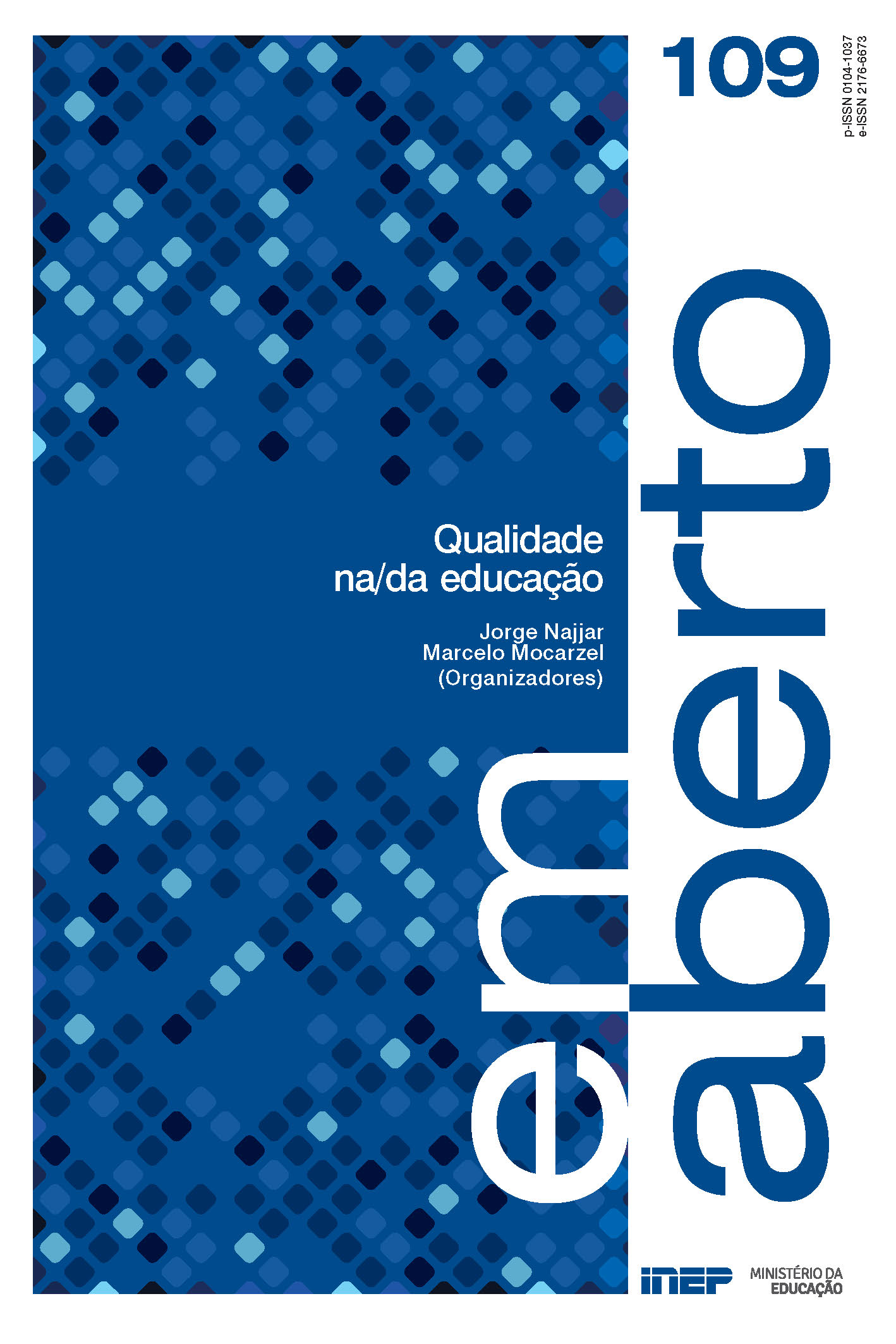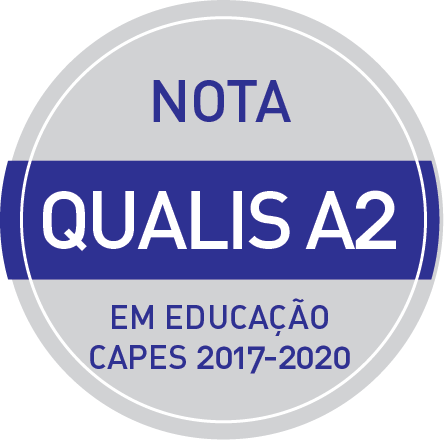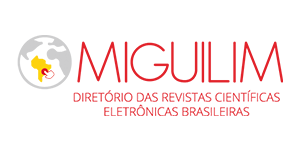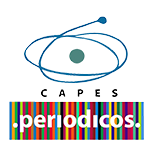Ethics and quality of education in times of COVID-19
Abstract
Based on the experience gathered during the COVID-19 pandemic, which revealed human beings’ vulnerability, this article points out how the concepts of quality coupled with quality management systems and the striving for excellence do not sufficiently meet the challenge of educating human beings capable to feel with others, and to enter into collaboration with each other, putting these values above personal interests and desire for success. This communal belonging reveals the fragility of human beings and, at the same time, the need to see others succeeding against risky conditions, as is the case of the current pandemic. Based on Judith Butler’s ethical proposal, the article proposes to take the vulnerable condition of the human being as a way to educate into caring for others and the environment. It concludes that recognizing and considering this imperfection is the way to respond to such individualism, brought about while emphasizing individual perfection and results achievement.
Downloads
References
AFONSO, A. J. Nem tudo o que conta em educação é mensurável ou comparável: crítica à accountability baseada em testes estandardizados e rankings escolares. Revista Lusófona de Educação, v. 13, n. 13, p. 13-29, 2009. Disponível em: <https://revistas.ulusofona.pt/index.php/rleducacao/article/view/545>. Acesso em: 22 maio 2020.
APLICACIÓN de ISO 9001 en instituciones universitarias. 6 ago. 2019. Disponible en: <https://www.nueva-iso-9001-2015.com/2019/08/aplicacion-de-iso-9001-en- instituciones-universitarias/>. Acceso el: 18 nov. 2020.
BUTLER, J. Marcos de guerra: las vidas lloradas. México: Paidós, 2010.
BUTLER, J. Vida precaria: el poder del duelo y la violencia. Buenos Aires: Paidós, 2006.
BUTLER, J. Dar cuenta de sí mismo: violencia ética y responsabilidad. Buenos Aires: Amorrortu, 2005.
COMISIÓN PARA LA EDUCACIÓN DE CALIDAD PARA TODOS. Construyendo una educación de calidad: un pacto con el futuro de América Latina. Buenos Aires: Santillana, 2016.
DOURADO, L. F.; OLIVEIRA, J. F. A qualidade da educação: perspectivas e desafios. Cadernos Cedes, Campinas, v. 29, n. 78, p. 201-215, ago. 2009.
DOURADO, L. F.; OLIVEIRA, J. F.; SANTOS, C. A. A qualidade da educação: conceitos e definições. Brasília: Inep, 2007. (Série Documental. Textos para Discussão, 24). 33 p. Disponível em: <http://portal.inep.gov.br/ documents/186968/485287/A+qualidade+da+educa%C3%A7%C3%A3o+concei tos+e+defini%C3%A7%C3%B5es/>. Acesso em: 18 nov. 2020.
ELEGIREMOS entre unir a la humanidad o el egoísmo: Harari. El Tiempo. EFE Bogotá, 7 abr. 2020. Disponible en: <https://www.eltiempo.com/mundo/mas- regiones/entrevista-a-yuval-noah-harari-sobre-el-coronavirus-481844>. Acceso el: 22 mayo 2020.
ESTEBAN, M. T. Silenciar a polissemia e invisibilizar os sujeitos: indagações ao discurso sobre a qualidade da educação. Revista Portuguesa de Educação, v. 21, n. 1, p. 5-31, 2008.
FOUCAULT, M. Discipline and punish: the birth of the prison. New York, NY: Vintage Books, 1995.
GONZÁLEZ, D. F. Boaventura de Sousa Santos y la cruel pedagogía del virus. El Tiempo, Bogotá, 2 jun. 2020. Disponible en: <https://www.eltiempo.com/bocas/ entrevista-con-boaventura-de-sousa-santos-501262>. Acceso el: 3 jun. 2020.
HOYOS VÁSQUEZ, G. Comunicación, educación y ciudadanía. En: HOYOS VÁSQUEZ, G.; SERNA ARANGO, J; GUTIÉRREZ RUIZ, E. F (Eds.). Borradores para una filosofía de la educación. Bogotá: Siglo del Hombre, 2007. p. 13-86.
MÈLICH, J. Ética de la compasión. Barcelona: Herder, 2010.
NAJJAR, J.; MORGAN, K.; MOCARZEL, M. A avaliação como elemento constituinte da qualidade educacional. In: NAJJAR, J.; CABRALES SALAZAR, O.; DÍAZ PÉREZ, V. R. (Orgs.). Pesquisas em educação no contexto Brasil-Colombia. Curitiba: Appris, 2017. p. 17-23.
SACRISTÁN, G. En busca del sentido de la educación. Madrid: Morata, 2013.
SACRISTAN, G. Diez tesis sobre la aparente utilidad de las competencias en educación. En: SACRISTÁN, G. (Comp.) Educar por competencias: ¿Qué hay de nuevo? Madrid: Morata, 2011. p. 15-58.
TRUJILLO, T. The modern cult of efficiency: intermediary organizations and the new scientific management. Educational Policy, v. 28, n. 2, p. 1-26, 2014. Disponible en: <https://doi.org/10.1177/0895904813513148>. Acceso el: 14 mayo 2020.
ORDINE, N. La utilidad de lo inútil: Manifiesto. Barcelona: Acantilado, 2017
Q.ALLIANCE ORGANISMO DE CERTIFICACIÓN EN NORMAS ISO. [s.f.]. Disponible en: <https://qalliance.org/es/sector-educacion/>. Acceso el: 30 may 2020.
ŽIŽEV, S. Coronavirus is ‘Kill Bill’-esque blow to capitalism and could lead to reinvention of communism. Russia Today. Op-ed, Moscú, 27 feb. 2020. Disponible en: <https://www.rt.com/op-ed/481831-coronavirus-kill-bill-capitalism- communism/>. Acceso el: 14 mayo 2020.
Copyright (c) 2021 Em Aberto

This work is licensed under a Creative Commons Attribution-NonCommercial 4.0 International License.
These are the terms of this Copyright Notice:
- I declare that I permanently forfeit in favor of the National Institute of Educational Studies and Research (INEP) all rights related to:
-
- editing, publication, reproduction, and distribution of the work;
- publication through digital and electronic media;
- translation of the work to any language;
- updating, re-printing, adaptation, and compression of the work;
- uploading of work in the publishing platform of INEP;
- divulging complete or parts of work through the World Wide Web (internet), whether in Brazil or foreign countries;
- authorization of third parties to execute any of the acts mentioned before.
- I explicitly declare that I am solely responsible for the opinions expressed in the work, and its publication does not violate the rights of third parties.
- I declare that the nature of said work is one of pro bono publico and, as such, I forfeit the right to any compensation regarding ownership rights granted.
- I authorize spelling and grammatical review of the manuscript, provided that the content and opinions therein remain unchanged.












